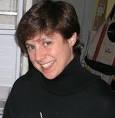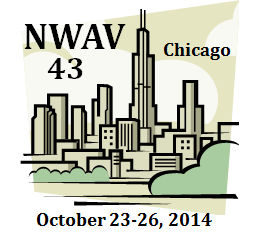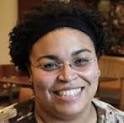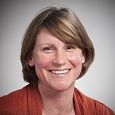Workshops
Thursday, October 23, 2014
1- 3 pm
Lakeshore Ballroom A
Quantitative methods: new trends and perspectives (Sali Tagliamonte, University of Toronto)
Quantitative methods are the corner stone of variationist sociolinguistic approaches to language variation and change. This year’s workshop continues the well-established tradition of revisiting existing methods and offering a sensible and practical guide to new analytical trends. Variable rule analysis and mixed effects modelling in R, as well as conditional inference tree modeling (see Tagliamonte 2012) will be of particular interest this year. Essential methodological questions, such as interviewing techniques, will also be discussed. |
|
Lakeshore Ballroom B
Sociolinguistics in the community: methods and action plans (Ann Hudley Charity, College of William and Mary, and Christine Mallinson, University of Maryland, Baltimore County
|
This workshop will introduce novice and experienced researchers to theoretical, ethical, and logistical considerations when developing a community-based research perspective. Workshop leaders will discussexamples from their experiences working with K-16 educators and education consultants from the humanities, social sciences, community members and stakeholders, lawyers and judges, physicians, clinicians, social workers, and healthcare providers. |
 |
Lakeshore Ballroom C
Best practices in sociophonetics (Marianna Di Paolo, University of Utah)
This workshop continues the discussion of best practices in sociophonetics begun at NWAV33. The ever-expanding range of knowledge necessary to do high quality work in the interdisciplinary field of sociophonetics demands that we provide quick access to the best methodological, technical, and procedural information to all researchers. This year’s special focus will be announced soon on this website! |
|
Thursday, October 23, 2014
Lakeshore Ballroom A
3:30 - 5:30 pm
A variationist approach to language contact (Shana Poplack, University of Ottawa)
Language contact is a booming sub-field of inquiry, but consensus is still lacking in many core areas. We propose that much of the controversy can be resolved by implementing the quantitative reasoning characteristic of the variationist paradigm. This workshop demonstrates how to adapt and apply the models and methods of linguistic variation theory to the study of language mixing. Beginner and advanced researchers will be introduced to the analysis of the major manifestations of language contact — lexical borrowing and code-switching — from a variationist sociolinguistic perspective through lecture, discussion, and hands-on practice. |
|
Lakeshore Ballroom B
Perception and language attitudes (Katie Drager, University of Hawaii)
|
This workshop will teach how to set up and run matched-guise and identification experiments to investigate what social characteristics are attributed to people who speak different languages or dialects and to determine the degree to which expectations about a speaker affect speech processing. The benefits and drawbacks of different methodological decisions and ethics in experimental work will be discussed. |
Lakeshore Ballroom C
Coding in ELAN (Naomi Nagy, University of Toronto & Miriam Meyerhoff, Victoria University Wellington)
 |
ELAN has established itself as a valuable tool for language documentation and is frequently used for transcription and multi-tier mark-up illustrating levels of linguistic structure as well as translations and glosses. This workshop will illustrate an extension to its utility: extracting and coding tokens of linguistic variables for quantitative analysis in the variationist sociolinguistic framework. |
|






